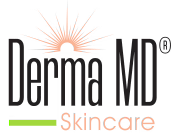Retinoids (HPR)
Retinoids are natural and synthetic vitamin A derivatives. They are lipophilic molecules and easily penetrate the epidermis. Their biologically active forms can modulate the expression of genes involved in cellular differentiation and proliferation. Retinoic acid (tretinoin), its 13-cis isomer isotretinoin, as well as various synthetic retinoids are used for therapeutic purposes, whereas retinaldehyde, retinol, and retinyl esters, because of their controlled conversion to retinoic acid or their direct receptor-independent biologic action, can be used as cosmeceuticals. These natural retinoic acid precursors are thus expected to be helpful in (i) renewing epidermal cells, (ii) acting as UV filters, (iii) preventing oxidative stress, (iv) controlling cutaneous bacterial flora, and (v) improving skin aging and photoaging. Retinol and retinyl esters are not irritant, whereas demonstrating only a modest clinical efficiency. On the other hand, retinaldehyde, which is fairly well tolerated, seems to be the most efficient cosmeceutical retinoid; it has significant efficiency toward oxidative stress, cutaneous bacterial flora, epidermis renewing, and photoaging.
